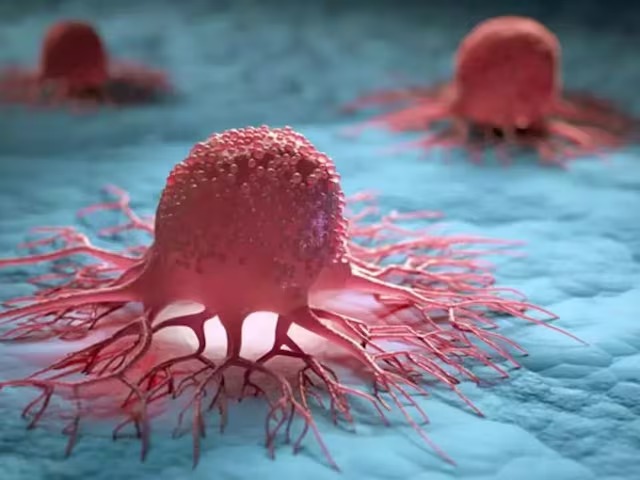Identify the Quiet Danger of Ovarian Cancer by Keeping an Eye Out for These 5 Signs
One of the main issues facing women’s health is ovarian cancer. According to data, the third most frequent malignancy among Indian women is ovarian cancer. Thus emphasizing the significance and need for comprehension. It is responsible for 3.33% (24015) of fatalities from cancer. It is a “silent disease,” meaning that it progresses to a more advanced state without exhibiting any particular symptoms and is often discovered at an advanced stage. This condition has different symptoms in different people. This makes it difficult to recognize symptoms early, emphasizing how crucial it is to be aware of any warning indicators.

Knowledge about Ovarian Cancer
The ovarian tissue is the source of ovarian cancer. The ovaries, which are located on each side in the lower abdomen, secrete hormones and produce the egg, or oocyte, which is necessary for reproduction. The precise etiology of ovarian cancer is still being investigated, although some known risk factors include advancing age, genetic changes, and family history.
The Top 5 Signs to Look Out for
Constant Bloating and Uncomfortable Stomach
Bloating and pain in the abdomen are symptoms of ovarian cancer. They often correspond with a decline in appetite. With only a modest amount of food, there is a sensation of fullness.
Adaptations to Bowel Habits
Changes in bowel patterns that don’t make sense, such constipation or diarrhea, should be assessed.
Pain in the abdomen or pelvis
A constant dull aching ache in the abdomen may be a warning indication and needs to be evaluated.
Unexpected Gain or Loss of Weight
Ovarian cancer is sometimes linked to inadvertent weight reduction.
Unusual Bleeding in the Vagina
Unusual vaginal bleeding may be a presenting characteristic of certain ovarian cancers. A physician need to look at this. Spotting, heavier than typical periods, or bleeding in between periods are examples of abnormal patterns.
Recall that having one or more of these symptoms is not always a sign of ovarian cancer. If one has such symptoms, it’s imperative to see a doctor to identify the source and rule out any major health issues.
QUICK DETECTION IS ESSENTIAL.
Make an appointment with your physician if you encounter any of the above-mentioned enduring symptoms. The likelihood of an effective course of therapy for ovarian cancer is greatly increased by early identification. In addition to doing a clinical assessment and pelvic exam, your doctor could also prescribe more testing, such as ultrasounds and blood tests, which might include a CA-125 blood test (although this test isn’t 100% accurate in ovarian cancer diagnosis).
Managing your well-being
You may take the following actions to take charge of your ovarian health:
routine examinations
Make an appointment for routine pelvic exams with your physician. Although ovarian cancer cannot be immediately detected by these tests, they may reveal other possible problems and provide you a chance to voice any concerns you may have.
Knowledge of Family History
Talk to your doctor about your risk factors if you have a close family (mother, sister, or daughter) who has been diagnosed with ovarian cancer. In these circumstances, genetic testing is advised.
Sustain a Healthy Weight and Lifestyle
Studies point to a possible connection between metabolic syndrome and obesity and poor prognoses for ovarian cancer. It might be advantageous to maintain a healthy weight with food and exercise.
Oral Contraceptives
Long-term use of birth control tablets may provide some protection against ovarian cancer. Talk to your doctor about this option to see whether it’s right for you.Thankfully, advances in the treatment of ovarian cancer have been achieved. The kind and stage of the cancer usually determine the treatment plan. Surgical excision of the ovaries, fallopian tubes, and sometimes surrounding tissue is often the first course of treatment. Further surgery, such as the excision of disease deposits, may be required in some circumstances. In certain cases, early-stage ovarian malignancies may potentially be candidates for fertility-sparing surgery. Another treatment option for cancer is chemotherapy. Targeted therapy may also be used, depending on the circumstances.
You may prevent problems by being aware of the signs, being proactive, and working with your doctor to make sure you’re okay. Recall, effective therapy depends on early discovery.







